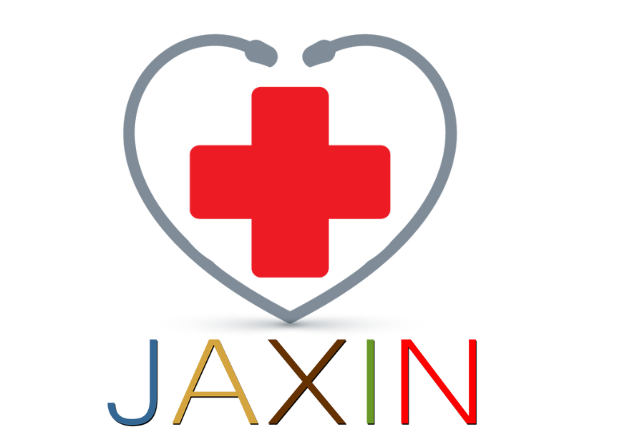
Overview
Diabetes is a chronic condition characterized by high blood sugar levels. It is common in Jamaica and the Caribbean due to dietary habits and lifestyle factors.

Common Symptoms
- Increased thirst and hunger
- Frequent urination
- Fatigue
- Blurred vision
- Slow-healing sores
Management
Managing diabetes involves monitoring blood sugar levels, following a healthy diet, regular physical activity, and taking prescribed medications or insulin.
Aspect | Mild | Moderate | Severe |
Blood Sugar Monitoring | · Self-monitoring of blood glucose (SMBG) a few times a week | · SMBG multiple times a day | · Continuous glucose monitoring (CGM) or SMBG multiple times daily |
Diet and Nutrition | Healthy diet, focus on portion control, and balanced meals | Structured meal planning, possible consultation with dietitian | Strict dietary management, regular consultation with dietitian |
Physical Activity | Regular exercise (e.g., walking, swimming) | Regular exercise (e.g., walking, swimming) | Tailored exercise regimen, possibly with medical supervision |
Medication | Possibly managed with lifestyle changes alone | Oral medications (e.g., metformin, sulfonylureas) | Combination of oral medications and insulin therapy |
Insulin Therapy | Not typically required | May require insulin during illness or stress | Regular insulin therapy, multiple daily injections or insulin pump |
HbA1c Target | <7% | <7% but individualized based on patient characteristics | <7%, often lower targets based on patient’s health |
Complication Screening | Annual screening for complications (e.g., eye exams, foot exams) | More frequent screening, typically semi-annually | Frequent and comprehensive screening, possibly quarterly |
Lifestyle Modifications | Emphasis on weight management, smoking cessation | Structured weight loss programs, intensive lifestyle intervention | Aggressive lifestyle intervention, including possible referral to specialized programs |
Monitoring for Comorbidities | Routine check-ups | More frequent monitoring for hypertension, dyslipidemia | Intensive monitoring and management of comorbidities |
Prevention
A healthy lifestyle, including a balanced diet and regular exercise, can help prevent type 2 diabetes.

How can you be active in your Diabetes Management?
Get involved
Limited access to diagnostic tools like HbA1c testing and a shortage of endocrinologists affect diabetes management in Jamaica. Additionally, there is inadequate public awareness of lifestyle changes necessary for diabetes prevention and management.
Patients can take an active role in managing their diabetes through various strategies and activities. Here’s a comprehensive guide on how they can get involved:
Self-Monitoring and Record Keeping
- Blood Glucose Monitoring:
- Regularly check blood sugar levels as recommended by healthcare providers.
- Use devices like glucometers or continuous glucose monitors (CGMs) to track levels.
- Keep a log of blood sugar readings, noting times of day, meals, and activities to identify patterns and trends.
- To request a FREE Glucose Monitor from the NHF click here.
- Record Keeping:
- Maintain a diabetes journal to record blood sugar levels, medication dosages, diet, exercise, and any symptoms.
- Use apps or online tools designed for diabetes management to keep digital records.

Education and Knowledge
- Diabetes Education:
- Attend diabetes education classes offered by hospitals or community health centers.
- Read reliable sources of information such as books, reputable websites, and patient leaflets provided by healthcare providers.
- Stay Informed:
- Keep up with the latest research and advancements in diabetes care.
- Learn about the complications of diabetes and how to prevent them.
Healthy Lifestyle Choices
- Diet and Nutrition:
- Follow a balanced diet rich in vegetables, lean proteins, and whole grains.
- Monitor carbohydrate intake and understand how different foods affect blood sugar levels.
- Consult with a dietitian or nutritionist for personalized meal planning.
- Physical Activity:
- Incorporate regular physical activity into daily routines, such as walking, swimming, or cycling.
- Aim for at least 150 minutes of moderate-intensity aerobic activity per week.
- Include strength training exercises to improve overall health.

Medication Management
- Adherence to Medication:
- Take medications exactly as prescribed by healthcare providers.
- Use pill organizers or set reminders to ensure medications are taken on time.
- Understand how each medication works and its potential side effects.
- Regular Medical Check-Ups
- Follow-Up Appointments:
- Attend all scheduled appointments with healthcare providers.
- Prepare questions and discuss any concerns during visits.
- Review blood sugar logs and discuss any patterns or irregularities with the doctor.
- Routine Screenings:
- Get regular screenings for diabetes complications such as eye exams, foot exams, and kidney function tests.
- Monitor blood pressure and cholesterol levels regularly.

Mental and Emotional Health
- Stress Management:
- Practice stress-reducing techniques such as regular walks, .
- Seek support from friends, family, or support groups.
- Mental Health:
- Recognize the emotional impact of living with diabetes and seek counseling if needed.
- Engage in activities that promote mental well-being and relaxation.
Community and Support
- Support Groups:
- Join diabetes support groups to share experiences and gain insights from others managing diabetes.
- Participate in online forums or local diabetes community events.
Empowerment and Advocacy
- Advocate for Yourself:
- Be proactive in healthcare decisions and express any concerns or preferences.
- Work with healthcare providers to set realistic and achievable health goals.
- Educate Others:
- Share knowledge and experiences with family and friends to help them understand diabetes.
- Volunteer or participate in community health initiatives to raise awareness about diabetes.

